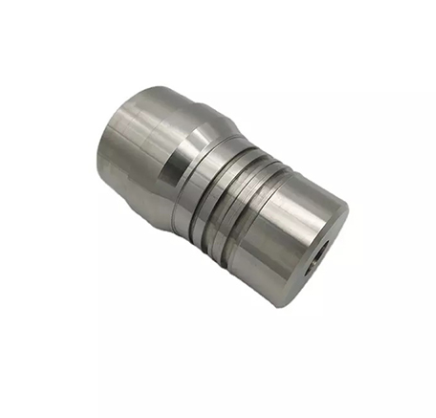CNC (Computer Numerical Control) machined aluminum parts play a significant role in enhancing automotive performance. These parts offer several advantages over other manufacturing techniques and materials, making them popular in the automotive industry. Here are some ways CNC machined aluminum parts contribute to performance enhancement:
Lightweight: Aluminum is a lightweight material, which is highly desirable in the automotive industry. By replacing heavier components with CNC machined aluminum parts, vehicles can achieve improved power-to-weight ratios, resulting in enhanced acceleration, handling, and fuel efficiency. Reduced weight also puts less strain on other vehicle systems, such as suspension and brakes.
Strength and Durability: Although aluminum is lightweight, it is also known for its strength and durability. CNC machining allows precise manufacturing of aluminum parts, ensuring high structural integrity and reliability. These parts can withstand heavy loads, vibrations, and harsh conditions, making them suitable for high-performance vehicles that require robust components.
Customization and Performance Tuning: CNC machining offers excellent flexibility and precision in creating complex designs and geometries. This allows automotive engineers and enthusiasts to create custom parts tailored to specific performance requirements. From intake manifolds, throttle bodies, and turbocharger components to suspension parts and engine mounts, CNC machined aluminum parts can be optimized for improved airflow, reduced weight, and increased performance.
Heat Dissipation: Aluminum has excellent thermal conductivity, meaning it efficiently transfers heat away from critical components such as engines and brakes. CNC machined aluminum parts with optimized designs and cooling features can effectively dissipate heat, preventing overheating and improving overall performance and reliability.
Reduced Friction: CNC machining can achieve tight tolerances and smooth surface finishes on aluminum parts. This results in reduced friction between moving components, leading to improved efficiency and performance. For example, CNC machined aluminum pistons and cylinder heads can reduce friction in the engine, contributing to higher power output and better fuel economy.
Corrosion Resistance: Aluminum naturally forms a protective oxide layer, providing excellent resistance to corrosion. CNC machined aluminum parts are often treated with additional coatings or anodization processes to enhance their corrosion resistance further. This makes them suitable for use in challenging environments and extends the lifespan of the components.
Aesthetics: In addition to performance benefits, CNC machined aluminum parts can enhance the visual appeal of a vehicle. The precise machining process can create intricate designs and attractive finishes, contributing to a more stylish and high-end appearance.
Overall, CNC machined aluminum parts offer a combination of lightweight construction, strength, durability, customization options, heat dissipation, reduced friction, corrosion resistance, and aesthetic appeal. These factors make them valuable for enhancing automotive performance in various areas, including power, efficiency, handling, and reliability.

